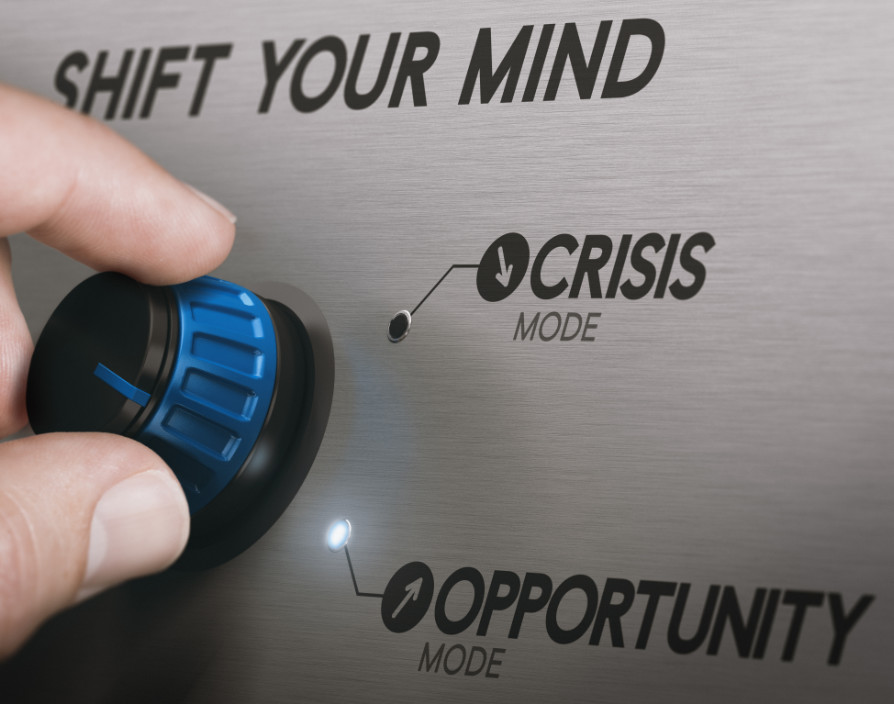The current global, socio-economic crisis has sent many leaders into a spin, leaving our teams and wider businesses and organisations reeling. It’s no surprise that wellbeing, mental health and resilience have been high on the agenda for many leaders and businesses and are likely to remain so.
So what is resilience? How will it help us in these challenging and changing times and crucially, how can we develop it? Is resilience even something that can be developed or learned, or is it innate ‘ part of our DNA and our personality make up?
Well, here’s some good news to help brighten some of the darkness of the moment ‘ resilience is a skill. Like most skills, whilst resilience comes more naturally to some than to others, it can be learned, practised and bettered. Think of resilience like the muscle behind your eyebrow. Most people can raise both eyebrows at once should they want to, but not everybody is born able to raise one eyebrow without the other.
Resilience is a bit like that muscle. It’s there ‘ we know it’s there because we can raise both eyebrows at once, but raising it independently requires focus and practice.
So what is this resilience muscle? How do we go about training it and making it stronger?
There’s a quote from that famous philosopher ‘ Rocky Balboa ‘ who has a great take on resilience and what it means, It ain’t about how hard you hit. It’s about how hard you can get hit and keep moving forward.
So that’s the thing. It’s about getting up and moving on. Moving forward after you’ve been knocked back. Resilience is our ability to return after we’ve had a set-back, to maintain hope and to demonstrate a spirit of optimism.
In his enduring book, Good to Great, Jim Collins describes what he calls the Stockdale Paradox. During the Vietnam War, American Naval Officer James Stockdale was held captive as a prisoner for over seven years. During this period, Stockdale was repeatedly tortured and had no reason to believe he would make it through alive. Make it through, however, he did. Reflecting later on how he kept his spirit from breaking during his horrific experience, he said this:
You must never confuse faith that you will prevail in the end ‘ which you can never afford to lose ‘ with the discipline to confront the most brutal facts of your current reality, whatever they might be
This then adds a nuance to the idea that resilience is simply, blindly and optimistically bouncing back. It suggests that it is not enough to hold onto that faith that we will prevail, but that to be truly resilient, we must also confront, accept and make the most of the darkest of realities.
Our aim in these times then is not to cling on and hope to return to where we were before the pandemic, but indeed, to engage with our circumstances in such a way that leads us to even better destinations. It is this mindset shift that will set apart those leaders who will empower their people and their organisations not only to survive what lay ahead, but indeed to thrive.
We call it the Opportunity Mindset. It is founded in faith of better things to come (optimism) and built with a true confrontation of, and engagement with, the challenges of now (realism).
Psychologist Martin Seligman, one of the foremost voices on the nature of resilience asserts that there are usually three factors that sit between those who have resilience and those who don’t. Those who bounce back from challenge and crisis are demonstrably able to convince themselves of the following three things:
It is not permanent. Psychologically speaking, when we are in the midst of a dramatic trauma or crisis, it is extremely difficult to imagine a scenario in which the causes of that trauma don’t exist. Yet, history tells us that even the most horrific of circumstances eventually end. Engaging with the truth of that sentiment, Seligman found was extremely liberating to those experiencing extreme challenge.
It is not pervasive. We are naturally inclined to operate from a belief that a crisis in one part of our lives automatically means that the rest of our lives will be negatively impacted. However, research has shown this is rarely the case (if we don’t let it). As an example, many people who have been badly affected by the Coronavirus on a professional front are nevertheless reporting increased closeness to their immediate family, higher levels of social wellbeing and engagement with the local community and better physical fitness levels.
It is not personal. It can feel at times that the whole world is operating against us. That every single (however small) knock-back is designed and tailored to upset our small piece of human existence. Seligman discovered that people who were able to objectify their experiences, to rationalise and to detach them from a sense of personal attack were far better placed to survive the challenges.
This ability to operate from a positive, optimistic place is one part of the Stockdale Paradox and goes a long way towards helping leaders survive challenges and bounce back from testing times.
What takes us even further however, and turns surviving into thriving is true engagement with the reality of the crisis itself.
In his book, Antifragile, Nassim Nicholas Taleb introduces us to the concept of the system that not only withstands pressure, stress and disorder, but benefits from it. An antifragile organisation is one that will grow in times of challenge, because it is a system based on continuous iteration and re-adjustment. This antifragility is built on a deep understanding of reality and some tough, sometimes brutal decisions ‘ allowing for what is fragile and therefore holding the system back to be re-designed, re-configured and on occasion removed entirely.
The antifragile system ‘ and indeed leader ‘ is one which keeps evolving. One that relishes sets backs and views them not as irritants or disasters, but as opportunities to learn and develop.
To train our resilience and develop an ‘Opportunity Mindset’ we can look at doing the following:
1) When faced with a failure or disappointment, ask yourself how you view that failure. Are you allowing your thinking to be hi-jacked by the three Ps? If so, challenge yourself to take a different view.
2) To develop perspective and help contextualise your situation, find a trusted confidante, coach or therapist to speak with openly. Explore your biggest fears about the situation and be specific. Often externalising our worst fears allows us to gain a handle on them and put them into a perspective that we wouldn’t otherwise have had.
3) When something goes wrong ‘ however small ‘ get into the habit of thinking about the opportunity that this turn of events presents you with. A client leaves you? Fine ‘ let’s focus on where we really want to be in today’s market and learn from their departure ‘ what could we have done differently?
4) Don’t shy away from the hard facts. An opportunity mindset is both optimistic and realistic. Take time to sit with the difficult stuff. Engage with it and think it through carefully. Accept that there may be sacrifices to be made in order to develop your antifragile system and hold onto the bigger picture of hope and of brighter, better things to come.
“
Share via:








































